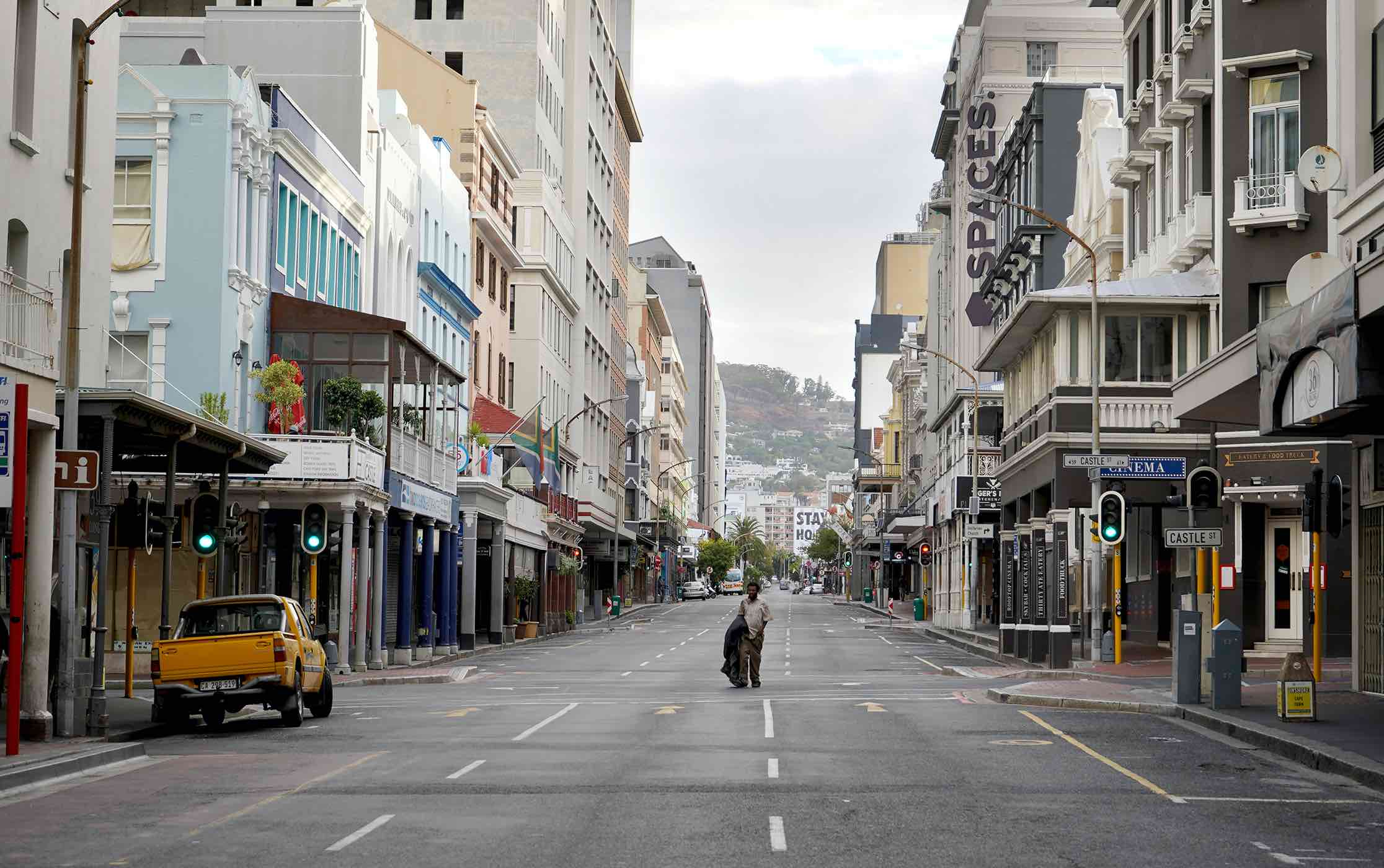COVID-19 is expected to have major impacts on poverty in Africa, but there is much uncertainty. In this post, Channing Arndt, Sherwin Gabriel, and Sherman Robinson highlight some key findings from modeling the potential impacts in South Africa and consider the implications for the country’s low income populations and food security.—Johan Swinnen, series co-editor and IFPRI Director General.
In trying to limit the spread of COVID-19, policy makers are confronting the difficult task of balancing the positive health effects of lockdowns against their economic costs—particularly the burdens imposed on low income and food-insecure households.
South African lockdown policies are relatively stringent, and the economic impacts are large. Figure 1 presents impacts on the income components of GDP, based on an analysis using a social accounting matrix (SAM) model, a tool well-suited to assessing the impacts of short-term shocks. The work is a collaboration between IFPRI, the National Treasury of South Africa, the South African Reserve Bank, and UNU-WIDER.
GDP can be viewed as a flow of goods and services, like water flowing under a bridge. The lockdown has direct effects that restrict this flow. Prominently, there is a forced reduction in production and final demand for goods and services falls as businesses and households are locked down. Indirect effects follow. For example, because many business operations, including some in manufacturing, are operating at low levels or not at all, demand for electricity declines, which in turn reduces demand for coal. Across productive sectors and households, these indirect effects propagate throughout the economy. The highly-disaggregated SAM model assesses direct and indirect effects between these multiple sectors.
Once all indirect effects of the lockdown are considered, the total flow of goods and services is reduced by about one third (see right-most bar in Figure 1) with indirect effects accounting for most of the reduction. Figure 1 also shows how this reduction is distributed across wage earners (divided into categories by educational attainment) and returns to capital. These declines in earnings should be interpreted as being due to reductions in hours worked and in the rate of utilization of factories, machines and other elements of installed capital. Note that the negative impacts on wage earnings are larger for lower- educated workers.
In South Africa, then, COVID-19 public health responses have very large implications for economic activity and income, with especially strong implications for households with low education levels who depend on wage earnings.
On their own, these negative economic shocks are sufficiently large to push many households into positions of food insecurity. To borrow a term from Amartya Sen, the lockdown could be characterized as a policy-induced reduction in household capabilities. Increased food insecurity results principally from the severe shock to household income rather than a shock to food availability such as in a drought.
Because the source of food insecurity is a collapse in earnings, income transfers via social protection are highly effective in countering the economic effects of lockdowns. In South Africa, government transfers are helping to substantially support total income of households in the lower half of the income distribution, blunting (but far from offsetting) the impacts of the crisis.
Using an income distribution and food security lens, the remarkably rapid and severe shocks imposed because of COVID-19 illustrate the value of having in place channels to transfer income to vulnerable households. This provides policymakers with the ability to soften the impacts of “black swan” type shocks on vulnerable populations. Looking ahead, preparing for future shocks also requires that, in good times, countries build their fiscal resources so that they can respond adequately at times of crisis.
Attention should now turn to developing a longer-run strategy for navigating the pandemic. Loosening movement restrictions too quickly risks a rapid increase in infections that could overwhelm the health system and cause more economic shocks as many workers become ill. South Africa’s large number of people with HIV has resulted in a well of experience in infectious disease on which it can draw. HIV is also a potential risk factor for COVID-19 complications, presenting additional public health challenges. Overall, decisions on public finances will need to carefully consider how to address multiple spending demands with lower tax revenues. Devising suitable responses will require that economists and epidemiologists work together to understand the mechanisms at work and balance the health dimensions of policies to contain the pandemic and their economic fallout—especially on vulnerable groups.
Channing Arndt is Director of IFPRI’s Environment and Production Technology Division; Sherwin Gabriel is an IFPRI Research Collaborator; Sherman Robinson is an IFPRI Research Fellow Emeritus. The analysis and opinions expressed in this piece are solely those of the authors.







